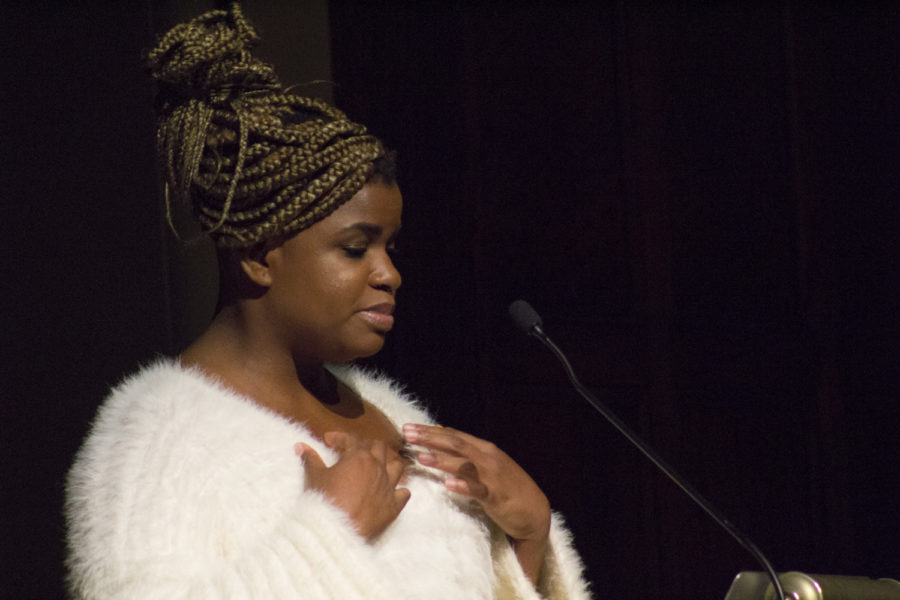Ericka Hart: Where are all the black people lecture
October 16, 2018
Ericka Hart, a breast cancer survivor and sexual educator, came to Iowa State Tuesday to deliver messages on diversity, inclusion and how the adversity she faced affected her life.
Her lecture is titled, “Where Are All of the Black People,” which Hart said she chose because of how often she has had to ask this question in her life.
Hart started her lecture with audience participation, instructing everyone in the audience to pair up and look in each other’s eyes for five minutes in silence. Hart instructed the audience to reflect on why they are feeling the way they are feeling, why they might want to look away, what they think the other persons day was like and more self-reflective instruction.
“One way you can create community is to notice the people around you. Sometimes this looks like just being present and acknowledging each other without saying anything,” Hart said.
Hart drew from her life experiences to tell students where she has seen racism in her life, but also where she has seen privilege. Hart started by outlining the different privileges she can find in her life, such as being a part of an upper middle class family, having a masters degree and privileges she has a female.
Hart then discussed details of sexual abuse she experienced as a young child from a neighbor. Hart said she kept the he details of her sexual abuse to herself for upwards of 20 years.
As a teenager, Hart’s mother was diagnosed with breast cancer. This diagnosis came as a shock because she had never seen anyone who looked like her mom did when she was sick. Her mother passed away soon after.
Hart attended college in Florida, where she went to a predominantly white institution, which she said is something that is not talked about enough.
“It’s not a coincidence that Iowa State is a predominantly white college,” Hart said. “We have to acknowledge dark spots in history.”
After her senior year of college, Hart joined the Peace Corps and educated people in Africa on HIV/AIDS. She said her time in Africa was eye-opening for her.
“For the first time in my life, I looked like I belonged,” Hart said.
At the age of 28, after moving to New York City, Hart received a call from her doctor, telling her she had been diagnosed with breast cancer. After she found out, she asked her doctor what breast scars after a mastectomy would look like on a woman with black skin. Hart’s doctor had no pictures and it took her two weeks for her to find an example.
“If we’re not represented in breast cancer advocacy, why would we go get tested?” Hart said.
At the close of her lecture, Hart outlined what she hopes students take away from her story.
“Don’t let it be just black folks asking and wondering: where all all of the black people?,” Hart said. “You are either an ally, an accomplice or more focused on being labeled something than ending racism. What can white people do? Give up power. WE got work to do!”







